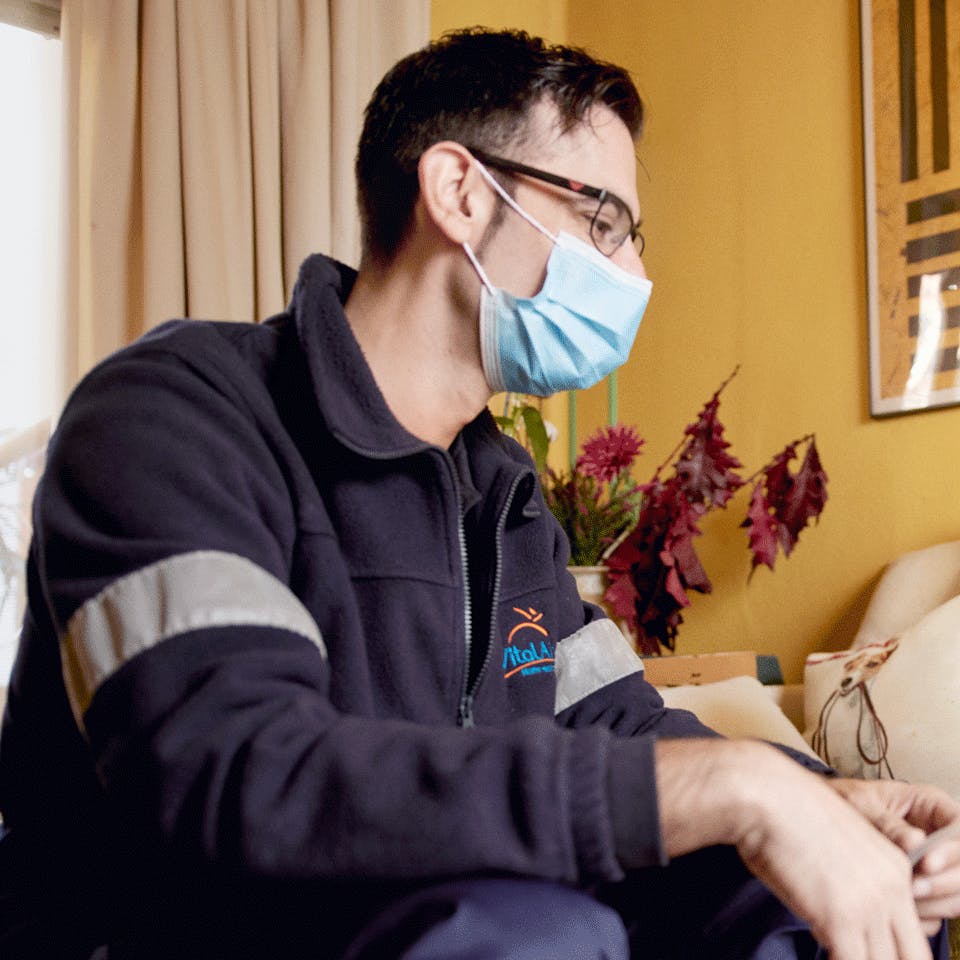
“My goal is to try to ensure the therapy interferes as little as possible with the patient’s daily life.”
[ Carlos Garcia Diaz ]
To learn more about the importance of value-based healthcare models, we jump in a car with David and head to his office to meet with Federica Bellingeri, Patient Empowerment and Centricity Manager for Air Liquide Healthcare in the Netherlands. “Value-based healthcare is increasingly gaining traction in the health sector,” she tells us. “Payers understand that personalized care plans allow for better targeting of resources and efforts.” David agrees: “The approach improves patient outcomes at the best cost for healthcare systems, which are under unprecedented strain due to rising life expectancy, chronic diseases and treatment costs,” he says.
To improve treatment adherence and long-term quality of life, feedback from patients on their needs, expectations and treatment experience is vital. And even their lifestyle enters into the equation. “Patient adherence to therapy is vital, but patients are often dealing with chronic conditions at home,” David points out. “Therapy outcomes rely not only on clinical indicators, but on the barriers or inconveniences of treatment being minimized as much as possible.”
